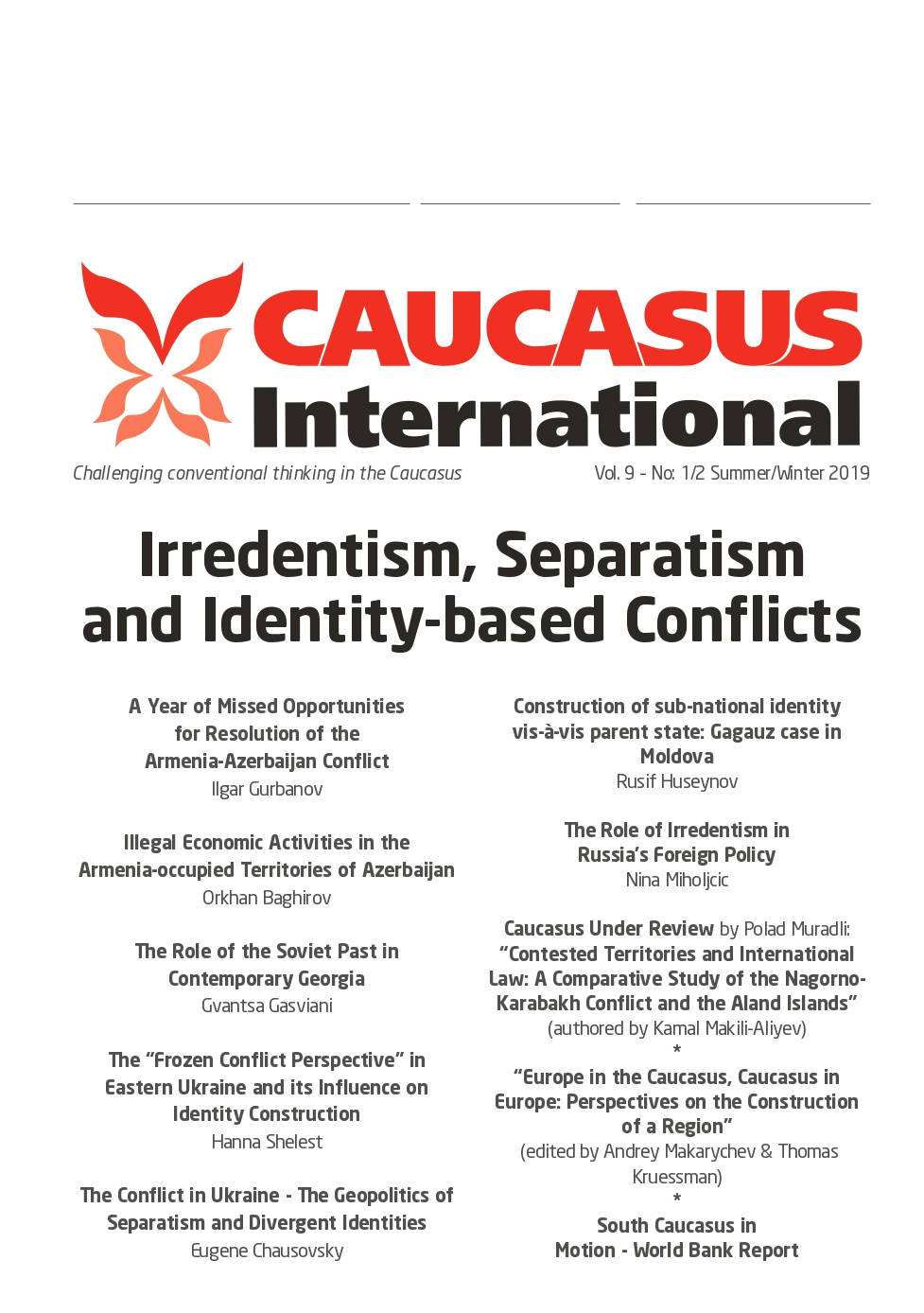The “Frozen Conflict Perspective” in Eastern Ukraine and its Influence on Identity Construction
Although socially and politically constructed, the self-identification of the separatist regions in the east of Ukraine and their inhabitants can have a significant influence on the conflict resolution process. Through an analysis of identity construction in Donbas via the self-perceptions of residents of both the controlled and the uncontrolled territories, and their views regarding the introduction of a “special status,” the author aims to answer the following question: Willa special status for the separatists’ territories facilitate conflict resolution, or is it a fixing agent for a constructed identity for territories that are experiencing political confrontations? The author argues that the frozen status of the conflict, in the event of the satisfaction of certain social needs, will lead to the deeper separation of the territories, while a special status within a unitary state will lead to the crystallization of their identity, transforming it from a local-cum-regional one to one with expressed features of a political national identity.
Keywords: Ukraine, Donbas, Identity construction, special status, “frozen conflict”
Latest news
- 03/17/2020 Call for Submission: “Non-Alignment Movement and Its Perspective in International Affairs”. Deadline: 1 July 2020 2621 views
Popular articles
- 02/24/2020 The Role of Irredentism in Russia’s Foreign Policy 2534 views
- 02/24/2020 Construction of sub-national identity vis-à-vis parent state: Gagauz case in Moldova 2214 views
- 02/24/2020 The Conflict in Ukraine - The Geopolitics of Separatism and Divergent Identities (Commentary) 2070 views
- 02/24/2020 The Role of the Soviet Past in Contemporary Georgia 2043 views





